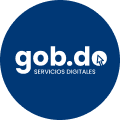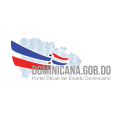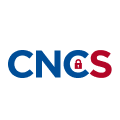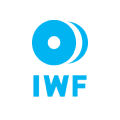The Board of the International Organization of Securities Commissions (IOSCO) today announced it has appointed Paul P. Andrews as its new Secretary General. Mr. Andrews is currently the Vice President and Managing Director of International at the Financial Industry Regulatory Authority (FINRA). He will take up his position at IOSCO for a three-year renewable term in March 2016.
Mr. Andrews succeeds David Wright, who joined IOSCO in March 2012 after 34 years of financial and regulatory policy work at the European Commission.
IOSCO Board Chairman, Greg Medcraft said: ‘On behalf of the Board I look forward to working closely with Paul in achieving our goal of reinforcing IOSCO’s role as key global reference point for securities regulation and implementing our 2020 Strategy.’
At FINRA, Mr. Andrews has sought to establish strong working relationships with regulatory bodies outside of the U.S to improve international cooperation and coordination. He represents FINRA at IOSCO, where he sits on the Regulatory Advisory Committee of IOSCO’s Affiliate Members Consultative Committee (AMCC) and chairs the AMCC Task Force on Risk.
He also serves as the Chair of the International Forum for Investor Education, a global organization dedicated to strengthening resources and standards for investor education within and across jurisdictions
Mr. Andrews said: It’s a privilege to be named to this position and I intend to work with the Board on three key themes: (1) strengthening IOSCO’s position as the international capital markets standards setter; (2) forging greater cooperation among regulators and other standard setting bodies on supervisory and enforcement issues while continuing to assist emerging markets with technical assistance and capacity building; and (3) engaging regulators world-wide to exchange information, discuss issues and approaches to common regulatory challenges, and seek to create global solutions where possible.”
Prior to joining FINRA, Mr. Andrews spent eight years at the U.S. Securities and Exchange Commission (SEC). During that time, he worked in the Division of Market Regulation and the Office of the General Counsel.
David Wright, current IOSCO Secretary General, said: “I wish Paul every success in his new function as Secretary General of IOSCO. He is an excellent choice to take IOSCO forward over the next years.”
NOTES TO THE EDITORS
- IOSCO is the leading international policy forum for securities regulators and is recognized as the global standard setter for securities regulation. The organization’s membership regulates more than 95% of the world’s securities markets in more than 115 jurisdictions and it continues to expand.
- The IOSCO Board is the governing and standard-setting body of the International Organization of Securities Commissions (IOSCO). The Board is made up of 34 securities regulators. Mr Greg Medcraft, chairman of the Australian Securities and Investments Commission, is the chair of the IOSCO Board. The members of the IOSCO Board are the securities regulatory authorities of Australia, Belgium, Brazil, China, Egypt, France, Germany, Greece, Hong Kong, India, Italy, Japan, Kenya, Korea, Malaysia, Mexico, the Netherlands, Nigeria, Ontario, Pakistan, Peru, Quebec, Saudi Arabia, Singapore, South Africa, Spain, Sweden, Switzerland, Thailand, Trinidad and Tobago, Turkey, United Kingdom and the United States.
- The Growth and Emerging Markets Committee is the largest Committee within IOSCO, representing 75 per cent of the IOSCO membership. Mr. Ranjit Ajit Singh, Chairman, Securities Commission, Malaysia, and Vice Chair of the IOSCO Board, is the Chair of the GEM. The Committee endeavors to promote the development and greater efficiency of emerging securities and futures markets by establishing principles and minimum standards, providing training programs and technical assistance for members and facilitating the exchange of information and transfer of technology and expertise.
- IOSCO aims through its permanent structures:
• to cooperate in developing, implementing and promoting adherence to internationally recognized and consistent standards of regulation, oversight and enforcement in order to protect investors, maintain fair, efficient and transparent markets, and seek to address systemic risks;
• to enhance investor protection and promote investor confidence in the integrity of securities markets, through strengthened information exchange and cooperation in enforcement against misconduct and in supervision of markets and market intermediaries; and
• to exchange information at both global and regional levels on their respective experiences in order to assist the development of markets, strengthen market infrastructure and implement appropriate regulation.






















